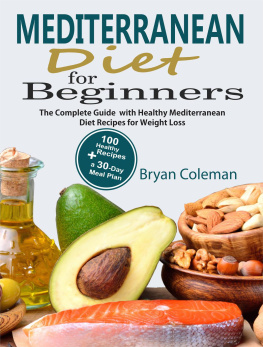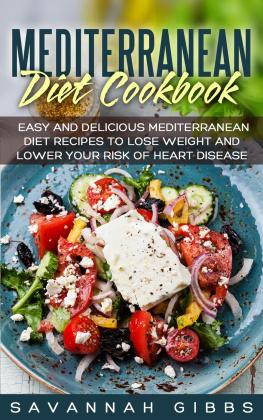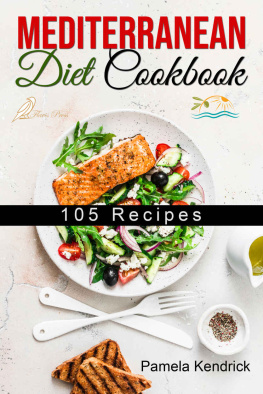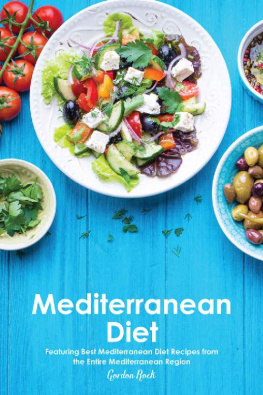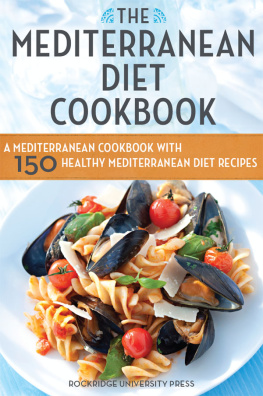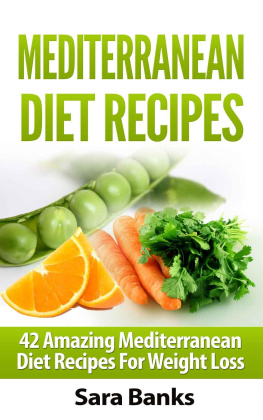Table of Contents
Introduction
D oes your current lifestyle leave you feeling unhealthy and tired? Many studies say that the current generation is living their lives at health risks. Stress, overwork, isolated, and junk food-driven environments have pushed many of us to early health problems. We need to stay in the present and give our health the highest priority rather than sacrificing it for an unpredictable future. Mediterranean diet and lifestyle will help you with that.
The Mediterranean is a region with a rich history and even richer food culture. The culture of the Mediterranean is what we are discussing when we say the Mediterranean diet. It is as respected and honored around the world as some of the great heritage sites.
This diet should not be considered as a temporary plan or program to stick by till you have reached a particular goal, but it should be seen as a permanent behavior-changing lifestyle, which will ultimately leave you in a better place then you are right now. In this lifestyle, you will not starve but fill yourself up with nutritious and wholesome meals. You can change your routine and portion size to lose weight and bulk up as well.
The natives of the region produce hearty dishes that are incredibly delicious and diverse. You need to use a lot of fruits and vegetables, get the most of your fat and proteins from fishes, and be generous about olive oil. The social and nonfood aspects are also very important, such as sharing a dining table with family and getting enough sleep.
What is the Mediterranean diet?
M any Magazines and Health Professionals claim the Mediterranean diet as the best diet plan available. The popularity around the topic started in the late 20th century. After a great deal of literature and reproducible studies, it has taken the number one spot among all the diet plans. If you want a fulfilling, disease avoiding, easy following, and nutritious diet plan, then you have to look no further.
It is inspired by the lifestyle and eating patterns of the people living in countries surrounding the Mediterranean Sea. The most noteworthy countries are Greece, Italy, Turkey, and France. The diet came into people's attention when papers and studies were published during the 1950s and 60s, showing a reduction in cardiovascular diseases in seven different countries in the region. These studies started because a doctor in Naples, a city in Italy, reported no cardiovascular-related cases at his hospital.
Mediterranean diet doesn't have a strict set of rules but guidelines that make you eat healthily. How does it do this? It makes you eat more vegetables and fruits of a diverse variety. It replaces your main protein intakes from red meat and eggs to fish, beans, and pulses, although you can consume eggs in moderation. Animal or saturated fats are primarily replaced by healthy unsaturated fats and Omega fatty acids. This is done by eating a lot of fish and olive oil compared to other sources of fat. Processed or "white" flour and rice are replaced by whole grains, which is ideal because refined grains make you more at risk with diseases. It doesn't prohibit eating dairy, snacks, and drinking wine but advises to do it in moderation. This is the general foundation that makes up this diet. Your main choice for liquids will become water when following this diet, and sugary drinks are not prohibited, but they are extremely discouraged.
There might be a better diet for weight loss or a particular organ, but the Mediterranean diet is a choice for overall healthy eating. There are a lot of ways it refines the body. It helps maintain mental health as it shows improvement in Alzheimer's and Parkinson's studies, it reduces the chances of type-2 diabetes and hypertension, two of the most prominent co-morbidities. It reduces the chances of obesity by decreasing excess carbohydrate and fat intake. These are just a few of the advantages they can give.
The most important reason why it is said to be the best diet of today is the ease in following and maintaining it. Studies have shown that fast diet plans that make a person starve and reduce weight quickly do not help the individual in the long run because they almost always revert to their routine and gain even more pounds, which are harder to shed. You can say that you will never eat carbohydrates again, but that is impossible if you are not extremely strong-willed. The diet gives maximum benefits with very low stress on the individual following it. Trendy diet plans always lose in experts' opinions because they are not researched well enough, and most of them don't let you indulge. A healthy diet should never restrict someone completely from any food.
Ten commandments of the Mediterranean diet
There are only ten guidelines that you have to follow to start your dieting journey.
Avoid using processed foods and always cook your meal.
Eat fresh, local, and seasonal vegetables and fruits. Opt for a diverse variety instead of sticking to a few selections.
Eat a lot more fish and beans to have a steady supply of protein. Seldom use eggs and chicken.
Eat a lot more whole grains and potatoes to give you your daily energy requirements.
Use dairy products in moderation but eat one form of it daily. Cheese is preferable than its other forms, especially goat and sheep cheese.
Eat a lot less red meats, and if you plan to, mix other ingredients as well.
Make all of your meals vegetable centered.
Use olive oil abundantly.
Have fruits in the form of desserts every day. Have a snack occasionally, but fruits should dominate.
Drink a lot of water to stay hydrated all day.
Nutrients in the Mediterranean diet
T he Mediterranean diet focuses on vegetables, so it contains a significant level of nutrition; many other advantages are seen by encouraging us to do smart cooking and eating choices. The diet contains an array of food groups filling us with sustenance.
Here are some of the most important nutrients that this diet provides.
Good Fats
The average person eats a lot of cholesterol and saturated fatty acids. Eating fried, fast foods, and using animal fats only damages our body. It is linked to heart disease and higher levels of cardiovascular problems. This diet switches the saturated fatty acids with monounsaturated fatty acids that lower the chances of these diseases.
Fiber
The diet encourages the use of vegetables, fruits, and whole grains. All of them lead to high consumption of dietary fiber. It makes it less likely for bowel cancer and other intestinal diseases to occur. Also, it helps digestion and may also reduce the chances of type 2 diabetes. It promotes satiety, which prevents overeating.
Vitamins and minerals
Almost all the daily requirements of different vitamins and minerals are fulfilled in this diet. Vegetables and fruits are naturally rich in these substances. A vitamin that is not found in them is Vitamin B12, which can only come from animal sources. A strict vegetarian diet might pose these problems, but not this one. In the Mediterranean diet, you are encouraged to eat lots of fish, and an abundant supply of it can be found in salmon, trout, and tuna.
Antioxidants
Vegetables and fruits are the main sources of antioxidants. They are substances that remove free radicals from our body, reducing the chances of cancer and many other problems. They are consumed in high quantities if you are following the diet's guidelines.
Less sugar
There is added sugar in every product that we buy. Sugars are the main culprit of obesity and its associated diseases. Lowering the consumption of sweets and snacks and replacing them with fruits can help elevate your health. Fruits have sugars in them, but they are also highly nutritious, so eating them in moderation is a smart choice.









